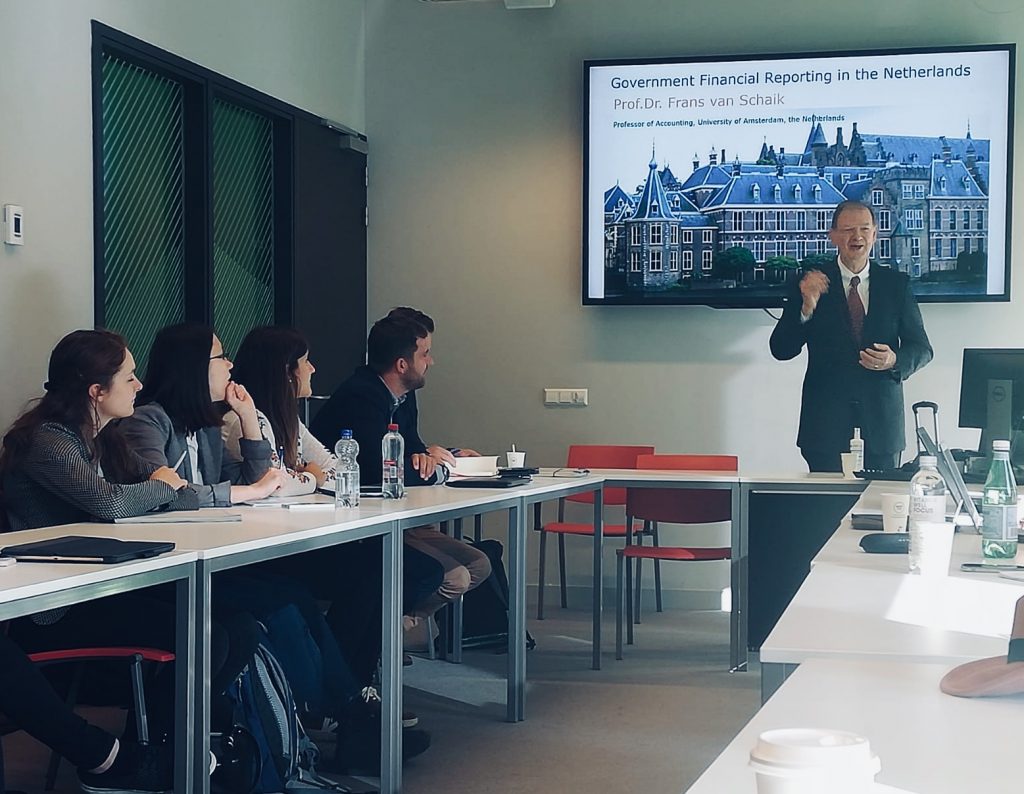It’s Friday and our study trip is coming to an end. To wrap up the past days, we offer you an overview of our last engagement here in Amsterdam.
With the visit to Amsterdam University on our agenda for the day, we prepare our class for the upcoming presentation. Arriving at The Student Hotel Amsterdam after a good nights sleep and a fresh cup of coffee we started off our introduction with facts about our host.

The University of Amsterdam, as one of the largest Universities of the Netherlands, started off 1632 solely offering education in medicine. Nowadays they supply students with knowledge in seven different faculties. One of them being the faculty of Economics and Business. Where Prof. Dr F.D.J. Frans van Schaik welcomes us as Professor of Management Accounting. Waking us up with his critical point of view towards the prevailing accounting system in the Netherlands. Pointing out, that the National Court of Audit and the Tax Administration both are content with following the law without going beyond to globalize themselves. Exemplary for the Netherlands rather outdated accounting system, Prof. van Schaik stated the fact, that they still use cash accounting on the governmental level even though many municipalities already made the switch to the more modern and standardized accrual accounting system.

Following this introduction, our host compared the Swiss and Dutch financial and socio-economic indicators. Concluding that, besides the use of accrual accounting systems, there are not many differences between the countries in terms of size, government bond ratings, GDP, the government’s expenditures and many other factors.
Edging towards the end of his presentation he introduced a topic that stimulated a lively discussion: The Dutch Disease. If one economic sector grows rapidly, like the natural gas concession once did in the Netherlands, and therefore increases the economic wealth, other sectors suffer under the loss of competition.
Does Switzerland suffer from the Dutch Disease?
During the discussion, arguments were made for and against the Dutch Disease being recognized in the Swiss Financial Sector. While some sectors might suffer under the strong Swiss Frank, one should keep in mind that external factors, such as the value of surrounding currencies or political stability, could influence the value of the Swiss Frank. Because of this, the group did not come to a final conclusion – unlike our study trip, which came to an end.
On that note, we thank Prof. van Schaik for his dedicated time, our instructors for the organization of a great study trip and our class for a fun time and vivid discussions. Have a safe trip home and see you soon in Winterthur.
